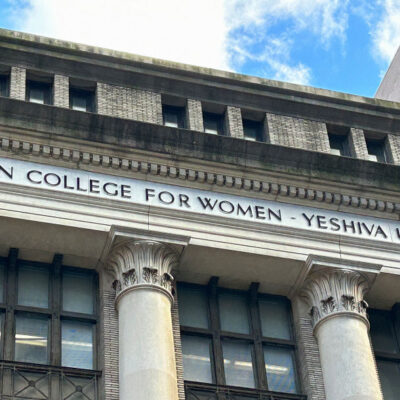BAD BALLOTS
World Zionist Congress election committee tosses nearly 2,000 suspect votes amid fraud allegations
There is not yet evidence that the two slates that received the votes were behind the irregularities, the election chairs said

Courtesy/WZO
The World Zionist Congress in Jerusalem in April 2023.
Days after identifying swaths of suspect votes in the ongoing World Zionist Congress elections tied to seemingly randomly generated emails, prepaid credit cards and other irregularities, the organization’s US Area Election Committee will be dismissing the nearly 2,000 votes in question and is working to identify those behind the apparent fraud, the AEC announced in a statement on Friday afternoon.
“Intentionally submitting fraudulent votes is not just immoral, it is a federal crime. We intend to conduct a forensic analysis to identify all those who submit suspect votes and we will continue our vigilant observation of this election. If appropriate, we will refer the matter and any perpetrators to the relevant law enforcement authorities,” the statement, signed by AEC chairs Abraham J. Gafni and David J. Butler, said.
The AEC chairs said they had not yet found evidence of the involvement of the two slates for whom the votes were cast, which have not been identified.
“It is important to stress that, as of this time, we have not seen evidence demonstrating that any particular slates or delegates were themselves involved in casting these irregular votes,” the statement said.
On Monday, April 7, eJewishPhilanthropy acquired the Area Election Committee’s internal communications about suspected voter fraud. Nearly 2% of total votes cast were found to be suspect, with around half tied to 50 similar email addresses and the same six locations.
“As has been reported, we recently discovered what appears to be instances of orchestrated voting irregularities in the U.S. election to the 39th World Zionist Congress. Although these irregular votes represent a very small fraction of the total number of votes cast, this pernicious activity has garnered our immediate and full attention. We have taken, and are taking, decisive action to swiftly address the problem,” according to the AEC statement on Friday.
In addition to rejecting the votes, Gafni and Butler said this “decisive action” included informing the slates of the irregularities and hiring outside attorneys — Adam P. Cohen and Jeffrey A. Udell of the law firm Walden Macht Haran & Williams LLP — to conduct the investigation into the votes.
“As advised by counsel, we will continue to investigate this serious breach and determine the proper course of action going forward, including by imposing all appropriate remedial measures,” Gafni and Butler wrote.
Last week, a number of progressive and center-left slates issued letters calling for the disqualification of the two slates that received the seemingly fraudulent votes, should they be found responsible, and for investigation into all votes made with prepaid cards. The slates requested disciplinary action by the AEC, to avoid further breaches of election regulations.
“Without the broader disqualifications, the lesson is that fraud is a low-risk tactic, with few consequences if caught. This message is inconsistent with our need to have an honest 2025 election conducted with integrity,” said one letter, written and signed by the Association of Reform Zionists of America (ARZA), Mercaz, Dorshei Torah V’Tzion, Kol Israel and AID Coalition, as well as Israel Shelanu, New Jewish Narrative and Partners for a Progressive Israel on behalf of Hatikvah.

 Add EJP on Google
Add EJP on Google









